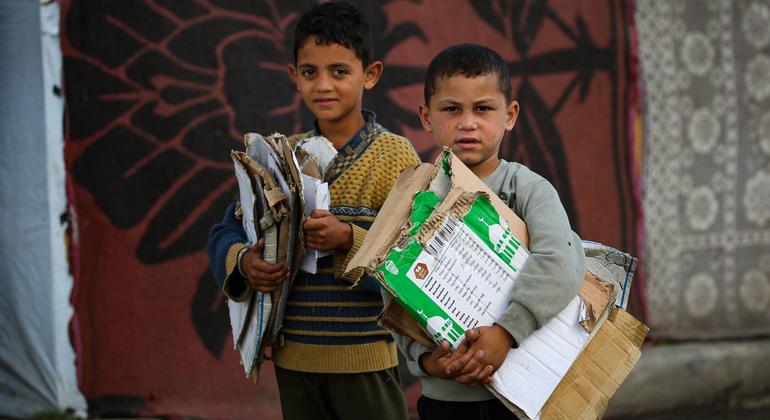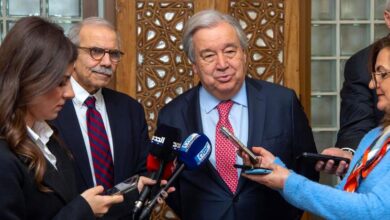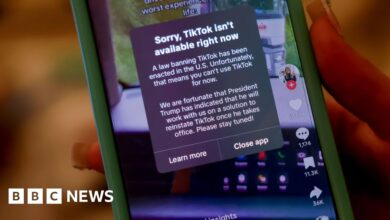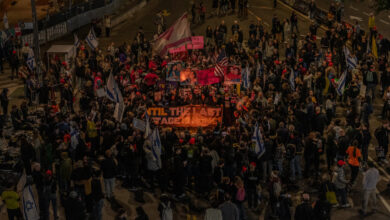Amid war in Gaza, children now have to work so their families can survive: ILO


Details of that development and the “unprecedented devastation” to the Palestinian job market and the broader economy beyond Gaza and the West Bank are outlined in a report. New ILO report.
Ahead of the announcement, the UN agency’s Director-General Gilbert Houngbo said at the 112th International Labor Conference in Geneva on Thursday that The labor market in Gaza has “literally collapsed” since “terrible” Hamas-led terrorist attacks against Israel last October sparked Israel’s “relentless war.”
“Today Gaza is being destroyed. Livelihoods are disrupted and jobs are scarce. Workers’ rights have been undermined,” he said. “This is the most difficult year for Palestinian workers since 1967. Never before has the situation been so bleak.”
Hard data
According to data compiled by ILO and the Palestinian Central Bureau of Statistics, the unemployment rate in the Gaza Strip has reached 79.1%.
Although not directly affected by the war, the occupied West Bank was also hit hard by the crisis, with nearly a third unemployed.
“These numbers bring the average unemployment rate to 50.8% across the two OPT sectors,” the book’s authors said. The situation of workers in the occupied Arab territories, before noting the actual number is likely to be even higher because it does not include individuals who have left the workforce entirely due to lack of opportunities.
Not surprisingly, total economic output in Gaza has fallen by 83.5% and in the West Bank by 22.7% over the past eight months, while the OPT economy as a whole has shrunk by nearly 33%.
Breakthrough health relief
In related developments in Gaza on Friday, the United Nations health agency announced that despite “significant restrictions”, a fully loaded truck and a partially stacked trailer were carrying medical aid. The cargo entered Gaza through the southern Kerem Shalom border crossing.
“The supplies will be distributed to medical facilities to support the treatment of up to 44,000 people,” said the World Health Organization (WHO) said in a post on X.
The UN health agency emphasized that this support includes treatments for non-communicable diseases such as hypertension and heart disease, type 2 diabetes and chronic respiratory diseases, but more measures are needed. more urgent relief through the still-closed Rafah border crossing.
In a separate update, WHO reported that 464 attacks on health care facilities in the Gaza Strip have been recorded since 7 October.
“The attacks left 727 people dead, 933 injured, 101 medical facilities and 113 ambulances affected,” the World Health Organization (WHO) said in another post on X .
“Two-fifths (37%) of the attacks occurred in Gaza City, nearly a quarter (23%) in northern Gaza and more than a quarter (28%) in Khan Younis. WHO calls for respect for international law and active protection of civilians and health care,” UN agency emphasize.
Rafah
In Rafah, fewer than 100,000 people remain across the southern province, the United Nations aid coordination office, OCHAreported late Thursday.
This comes after the forced evacuation of “about a million people – who are again on the run” and moving towards Khan Younis and Deir al Balah, OCHA said, adding that ongoing hostilities had caused Serious disruption of relief provision.
The United Nations aid office explained that the cessation of fuel supplies via Rafah from Egypt had many negative consequences because it affected “trucks, hospitals, wastewater systems, decontamination activities, salt and bakery”.
“In the current situation, aid convoys still need to move amid ongoing fighting, difficult roads, unexploded ordnance and frequent delays,” OCHA said.
Israel-Lebanon border conflict causes serious concern: Guterres
UN Secretary-General António Guterres said on Thursday that continuing gun battles between Israeli forces and rebels in southern Lebanon along the UN-patrolled Green Line border were a source of serious concern.
In a statement issued in the evening from his Spokesperson’s Office in New York, the United Nations chief called for an urgent ceasefire.
He remains deeply concerned that the gunfights are not only devastating communities near the Green Line but are also having a deeper impact on the territories of both Lebanon and Israel, with the use of increasingly destructive weapons.” , the statement continued.
“These firefights could trigger a wider conflict with devastating consequences for the region.”



